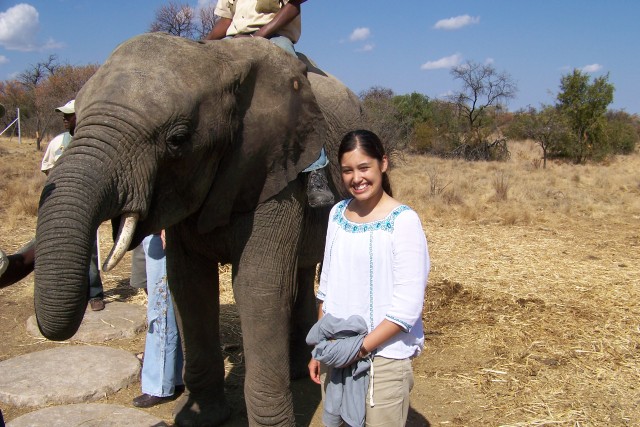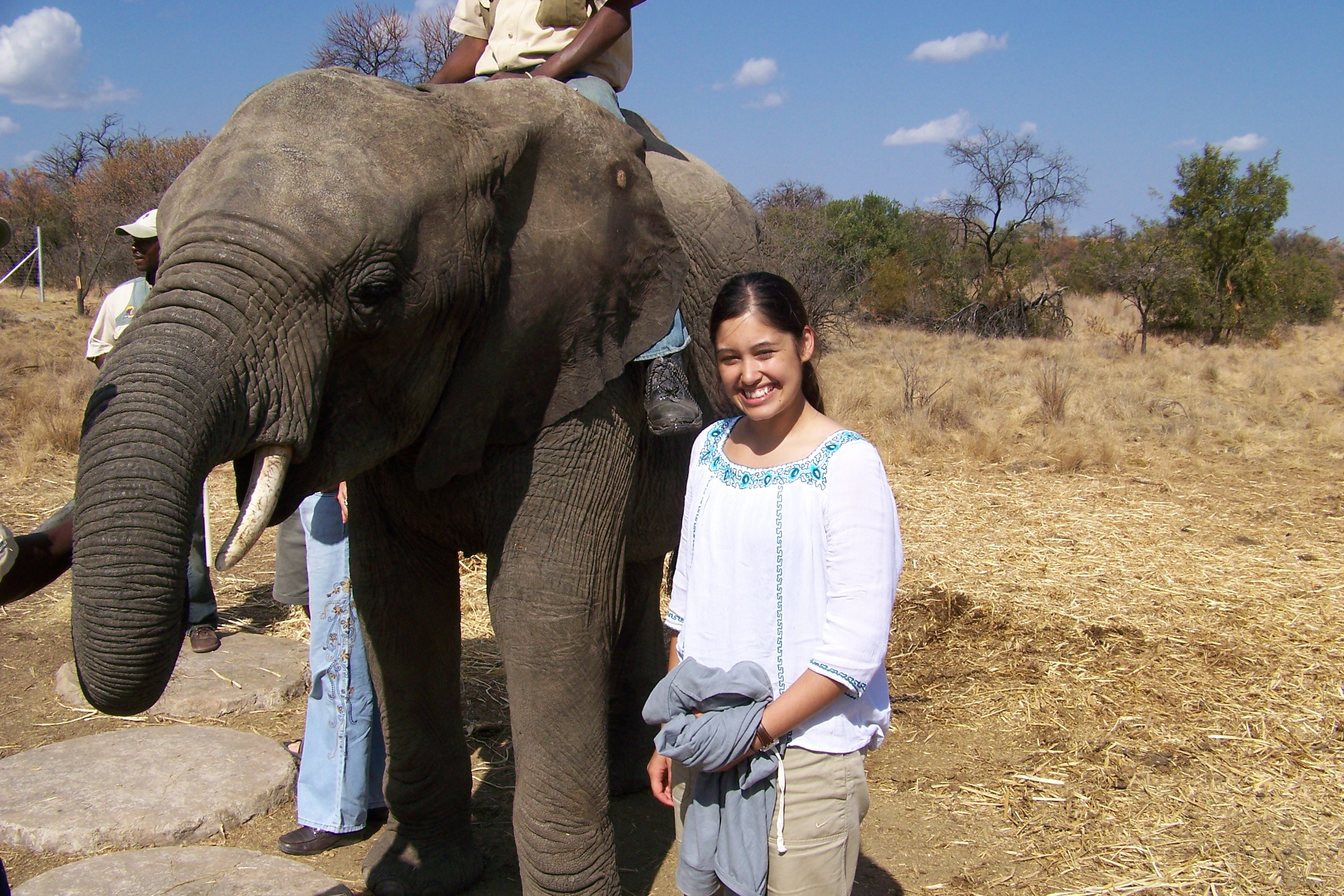
WEST POINT, N.Y. (Aug. 18, 2010) -- Class of 2011 Cadet Kayla Khan recently completed an advanced individual academic development trip to Tanzania where she served as an integral part of a team from the Army Research Office sent to evaluate the potential of land mine detecting rats from the Belgian non-governmental organization, APOPO.
Part of the observation process involved traveling to APOPO's facilities in Morogoro, Tanzania. Working with Maj. John Ringquist, AIAD officer-in-charge, Khan learned about the breeding cycle, training methods and employment of the mine-detecting African giant pouched rats. Direct observation verified the rats' TNT detection abilities.
APOPO also trained some rats for tuberculosis detection. Khan played an important role as an observer for the multi-disciplinary ARO team, contributing an important section on rat training and socialization to the group's report. After the rat observation phase of the AIAD concluded, the team then traveled to South Africa for the second part of the evaluation mission.
In South Africa, Khan and Ringquist visited the demining company Denel Mechem, where they spent three days observing dogs in action, detecting explosives and contraband in a variety of settings.
At Mechem, Khan experienced the newest CASSPIR armored personnel carrier as a passenger in the mine resistant vehicle's troop compartment, then had the opportunity to don a mine clearance suit and experience it first-hand. The Mechem experience offered a number of opportunities to meet and converse with legends in the demining community and to learn more about remote scent testing for explosives. Khan integrated well with the Mechem team and was privileged to be permitted to tour and handle some of the trained and untrained contraband dogs.
Elephants comprised the grand finale of the AIAD, as Khan and Ringquist spent a day with the Elephants Forever, an NGO and former Zimbabwean organization that trains orphaned and unwanted juvenile elephants to detect contraband. The elephants are equipped with a sense of smell keen enough to detect contraband from hundreds of meters away. During demonstrations the elephants identified poacher equipment, fugitives and explosives.
The elephant experience concluded with a five-mile elephant safari and a brief lecture by the NGO's founder on the intelligence and sociability of the elephants.
"Overall, the AIAD gave me a chance to undertake more unconventional studies in history," Khan said. "With graduation so close, I appreciate having been able to explore potential future war-fighting assets."

Social Sharing